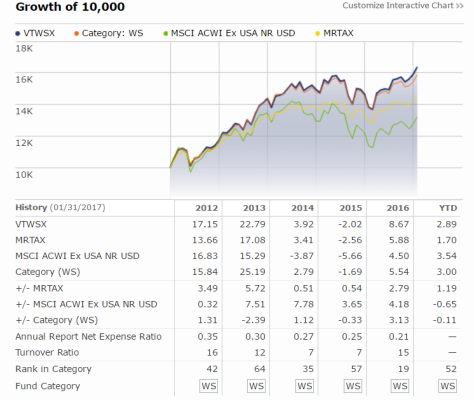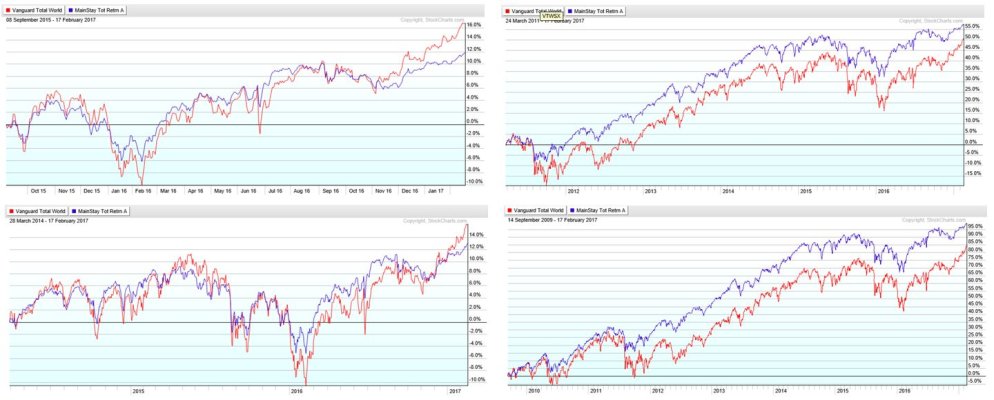Boho
Thinks s/he gets paid by the post
- Joined
- Feb 7, 2017
- Messages
- 1,844
I figured I'd post this FWIW. The only significant bonds I have are from the international bond fund PFORX so I'm thinking of adding a domestic bond fund. Maybe something else will stand out to you as being missing. I haven't even worked out the percentages in each fund yet though.
ONEQ was the first I added just because I wanted to move away from the old securities quickly. It's possible I'll sell it eventually and just balance the others to make up for it, if possible. I don't even recall the exact justification for adding each one, but they made sense at the time. As I said, FWIW:
ONEQ - Fidelity NASDAQ Comp. Index Trk Stk(ETF)
NUMV - NuShares ESG Mid-Cap Value ETF
PRBLX - Parnassus Core Equity Fund - Investor Shares
MTRAX - MainStay Income Builder Fund Class A
PFORX - Foreign Bond (U.S. Dollar-Hedged) Fund Institutional Class
ONEQ was the first I added just because I wanted to move away from the old securities quickly. It's possible I'll sell it eventually and just balance the others to make up for it, if possible. I don't even recall the exact justification for adding each one, but they made sense at the time. As I said, FWIW:
ONEQ - Fidelity NASDAQ Comp. Index Trk Stk(ETF)
NUMV - NuShares ESG Mid-Cap Value ETF
PRBLX - Parnassus Core Equity Fund - Investor Shares
MTRAX - MainStay Income Builder Fund Class A
PFORX - Foreign Bond (U.S. Dollar-Hedged) Fund Institutional Class



